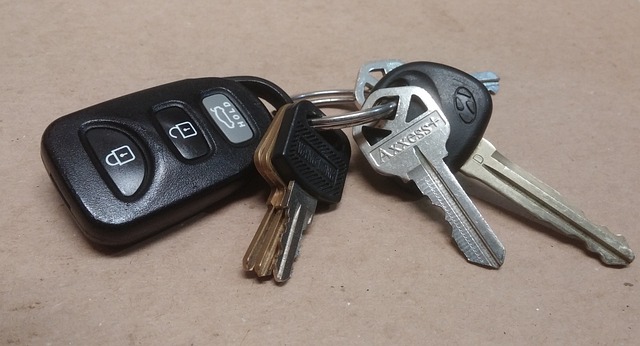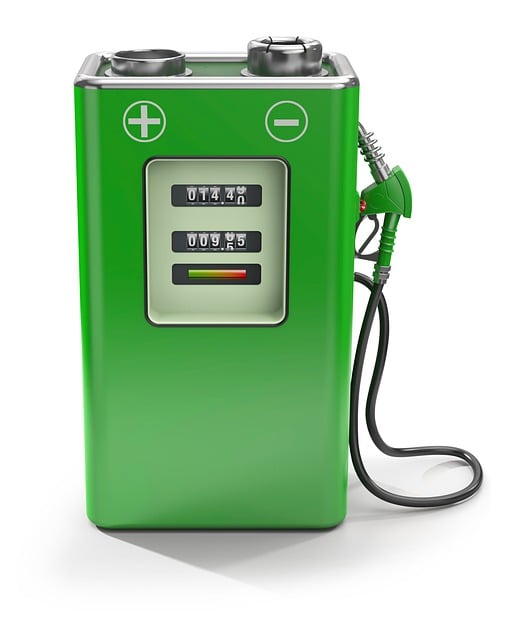If your car key fob is experiencing issues such as failing to unlock or lock doors, slow button responses, or weak light output upon pressing a button, it's likely time to replace its battery. Most key fob batteries have a lifespan of three to five years, which can be shorter if the fob is used frequently or has a type of battery with a shorter life. Diminished performance and a reduced operational range are common signs of a weak battery. A dying battery may also emit unusual sounds like faint clicks or a continuous whirring when buttons are pressed, indicating it's time for a replacement. Replacing the battery ensures the key fob's functionality, including its security features, and prevents more significant issues that could leave you stranded. The process of replacing the CR2032 lithium battery—typically used in key fobs—can usually be done by car owners themselves, but professional assistance is available for those who prefer it. Regular battery checks and proactive replacements are key to maintaining your key fob's performance and ensuring its security and convenience features remain reliable.
When faced with a car key fob that’s losing its zest, discerning signs of battery depletion is key. This article sheds light on the indicators that signal it’s time to replace battery in your key fob, ensuring your vehicle’s electronic security remains reliable and responsive. We’ll explore the common issues such as diminishing range, responsiveness problems, odd noises upon button engagement, and instances where your fob fails to unlock or start your car. Understanding these signals is crucial for maintaining the functionality of your keyless entry system and safeguarding your vehicle against unauthorized access.
- Signs It's Time to Replace Battery in Key Fob
- Diminishing Range and Responsiveness Issues
- Unusual Sounds When Pressing Buttons
- Failure to Unlock or Start Your Vehicle
Signs It's Time to Replace Battery in Key Fob

When the electronic features of your vehicle’s key fob are no longer functioning as expected, it may be a sign that the battery within needs to be replaced. A key fob’s battery typically has a lifespan of about three to five years, depending on usage and battery type. However, there are distinct indicators that can signal the need for a replace battery in key fob. One of the most evident signs is when the fob fails to unlock or lock your car doors, indicating a weak battery that cannot hold a charge sufficiently. Another clear sign is if the buttons on the fob respond slowly or not at all. If the light on the fob flickers or does not illuminate when you press a button, this is a definitive indication that the battery’s voltage has dropped too low to power these functions effectively. It’s also worth noting if your keyless entry system stops recognizing the fob, as this can be attributed to a depleted battery. In such cases, replacing the battery is not just a matter of convenience but a necessity for maintaining your vehicle’s security and functionality. Ensure that you follow the manufacturer’s instructions or consult with a professional when replacing the battery to avoid any issues with your key fob’s operation.
Diminishing Range and Responsiveness Issues

When your key fob’s range begins to wane, it may be a clear sign that the battery within needs replacement. The diminishing range manifests as difficulty in locking or unlocking your car from a distance, a feature that once functioned seamlessly now requires you to be closer to your vehicle than usual. This reduction in operational range is often the first indicator that the internal power source is losing its charge. As the battery discharges further, responsiveness issues can arise, leading to delayed or non-responsive signals from your key fob to the car’s security system. These issues can be particularly frustrating when you’re in a hurry or when attempting to access your vehicle under adverse weather conditions. To address these problems promptly, consider replacing the battery in your key fob. This simple maintenance step not only restores the functionality of your key fob but also ensures that you can maintain a reliable connection with your car, preserving both convenience and security.
Unusual Sounds When Pressing Buttons

If your key fob begins to emit strange noises upon pressing its buttons—such as a series of faint clicks or a persistent whirring sound that’s not typical for the device—this could be an indication that the battery is nearing the end of its lifecycle. These sounds are often a result of the internal circuitry trying to engage with a battery that no longer holds a sufficient charge to operate effectively. Over time, the chemical reactions within the battery that enable it to function become less efficient, leading to inconsistent responses to button presses. To rectify this issue, it’s advisable to replace the battery in your key fob. This straightforward task can typically be done by the car owner or a professional if needed. Replacing the battery will ensure that your key fob functions correctly, maintaining the security and convenience of your vehicle’s keyless entry system. Regularly monitoring your key fob for these audio cues can prevent future complications and help you to address the situation before the device becomes completely inoperable.
Failure to Unlock or Start Your Vehicle

If your vehicle’s key fob fails to respond to your attempts to unlock or start it, this could be a clear sign that the battery within the fob needs to be replaced. Over time, the small battery housed in the key fob can lose its charge and become too weak to power the electronic components effectively. This often manifests as a lack of response when you press the unlock or start button. Unlike the main vehicle battery, which powers the engine and various electrical systems, the battery in your key fob is separate and specifically designed to operate the remote functions. When you notice this issue, it’s advisable to replace the battery in your key fob promptly. Not only will this restore the functionality of your key fob, but it will also ensure that your vehicle’s security systems continue to operate reliably. It’s a straightforward process for most modern key fobs, and many come with a CR2032 lithium battery that can be easily removed and replaced by the vehicle owner. If you’re not comfortable performing this task yourself, consulting a professional mechanic or your car’s manufacturer can provide assistance and guarantee that the replacement is done correctly, thus avoiding further complications. Regularly replacing the battery in your key fob can prevent such failures and save you from the inconvenience of being stranded outside your vehicle unable to access it or start its engine.
When your key fob’s performance starts to wane, it’s a clear sign that it may be time to replace the battery. Diminishing range, responsiveness issues, and unusual sounds upon button presses are all telltale signs that the device’s efficiency is on the decline. If your key fob fails to perform its most basic functions—unlocking or starting your vehicle—the need for a replacement battery becomes even more pressing. Addressing these issues promptly ensures your car’s security and convenience systems remain reliable, which is why keeping an eye on your key fob’s health and replacing the battery when necessary is essential. Remember, maintaining a fully functional key fob with a fresh battery can prevent future complications and keep you connected to your vehicle at all times.
